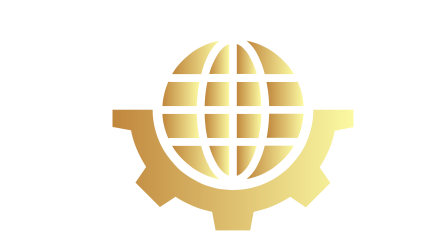Injecting Organizational Efficiency with AI Chatbots: Entering a new era of organizational transformation and productivity
BRIGITTA GYOERFI, Innovation Strategist, Digital Transformation, Digital Product Design, Business Ventures, Fintech
https://www.linkedin.com/in/brigittagyoerfi/
Injecting Organizational Efficiency with AI Chatbots: Entering a new era of organizational transformation and productivity
Unlocking the potential for agility and innovation is the holy grail for traditional organizations in the fiercely competitive landscape of top-tier financial services. As an innovation leader, I have witnessed the challenges they face in scaling transformation processes. That´s why executives are now eagerly exploring new avenues to accelerate progress. In this era of technological advancement, AI experts propose a game-changing solution: harnessing the power of AI chatbots while integrating the proven principles of Change Theory, Nudge Theory, and Thinking Fast & Slow. This dynamic combination has the potential to revolutionize efficiency efforts and ignite organizations´ learning capabilities like never before.
The Inefficiency Conundrum
Organizational inefficiency is a complex issue that often arises due to a lack of streamlined communication, fragmented processes across organizational silos, misaligned incentives, and limited access to timely and relevant information. Unfortunately, these inefficiencies often hit women the hardest, as they find themselves excluded from crucial decision-making processes that tend to unfold in informal ways. These obstacles not only hinder equity within organizations but also impede the scalability of transformation initiatives, putting the brakes on progress.
AI-Powered Solution of the Future
These intelligent “virtual assistants” are available 24/7, providing employees with instant access to unbiased information, guidance, and support. By leveraging the principles of Nudge Theory, which suggests that subtle suggestions can influence decision-making, organizations can design interventions that promote positive behavioral changes at all levels of the organization.
Leveraging Thinking Fast & Slow
Incorporating the principles of Thinking Fast & Slow, as proposed by psychologist Daniel Kahneman, further enhances the effectiveness of AI chatbots in driving organizational change. Thinking Fast refers to our intuitive, automatic decision-making process, while Thinking Slowly represents our more deliberate and analytical thinking. We have a tendency to overrely on our intuitive and often biased thinking to create mental shortcuts that can result in irrational decision-making. By understanding these cognitive processes, the AI chatbot can tailor its nudges to promote diverse perspectives, challenge confirmation bias, enforce decision-making frameworks for investment decisions, promote sustainability aspects to drive specific agendas, and encourage considerations of adverse consequences like short-termism and more.
Tailored Interventions and Rollout
The AI chatbot, armed with insights from the continuous feedback loop, can provide personalized nudges and interventions to drive efficiency at an individual and team level. By taking into account the unique characteristics and thinking styles of employees, the chatbot can deliver targeted suggestions, reminders, and prompts that encourage better decision-making, streamline processes, and optimize workflows. Moreover, it can ensure that interventions can be rolled out across the organization seamlessly and consistently.
Mind The Gap
AI chatbots for decision support come with inherent risks. These include reliance on incomplete or inaccurate information that was fed into the system, potential overreliance without human judgment, and privacy and bias concerns. Organizations must take proactive measures to address these risks through robust data privacy protocols, ongoing monitoring, and mitigation of biases to ensure the reliability and integrity of the decision support process.
Conclusion
In the face of organizational inefficiencies, the use of AI chatbots can be a game-changer. By leveraging the principles of Change Theory, Nudge Theory and incorporating insights from Thinking Fast & Slow, organizations can inject efficiency into their processes, foster a culture of continues improvement, and drive sustainable transformation. The AI chatbot´s ability to provide continuous support, personalized interventions, and a 24/7 feedback loop makes it an invaluable tool in the pursuit of organizational change. Embracing this innovative solution can empower organizations to overcome scalability challenges and unlock their full potential.
Presseportal: https://www.presseportal.ch/de/nr/100096065https://swissfintechladies.ch/blog/








No Comments